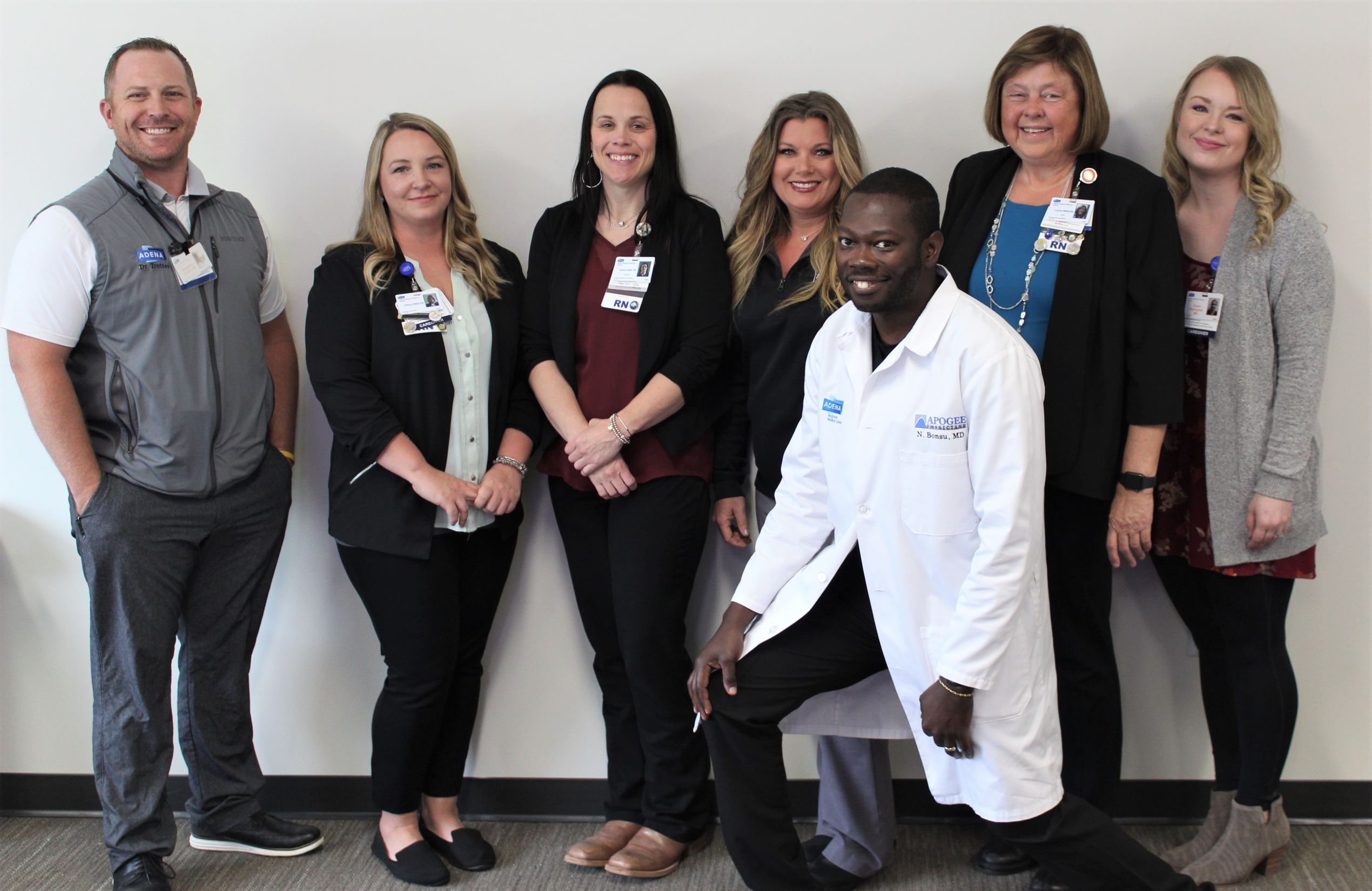Adena Certified for Providing High Quality Care of Patients with Sepsis

An overwhelming, potentially life-threatening response to an infection, sepsis can lead to tissue damage, organ failure, other serious complications and even death. It is, in fact, the leading cause of death in hospitals and a leading cause of hospital readmissions.
A significant problem, to be sure, but one that The Joint Commission (TJC) feels Adena Regional Medical Center (ARMC) is very qualified to handle. TJC recently awarded ARMC its seal of approval - Sepsis Certification – following a thorough review process.
Adena’s certification is fairly unique for two reasons. First, ARMC is one of just a couple hospitals in the state of Ohio presently holding a Sepsis Certification from The Joint Commission. Second, TJC’s review of Adena’s program included no findings regarding areas needing improvement.
“We’ve only had two programs of ours walk out of their review with no findings, and that was Perinatal Care its first year and now Sepsis in its first review,” said Alison Kirkbride, Coordinator of Accreditation and Certification for Adena. “It’s common to have findings, maybe not a large amount of findings, but that’s pretty excellent to not have any.”
So what does having that certification mean for patients? It means they can have confidence that the quality and safety of the care, treatment and services for sepsis meets the highest possible standard. It means that treatment follows the most up-do-date best practices and research. It means the hospital has proven, by successfully undergoing the scrutiny of a rigorous certification process, that it meets the high standards set by The Joint Commission for safe, quality patient care.
“What we’re trying to do through these certifications is elevate our care to the highest level – to a higher level than anybody around us so our community is getting the best care possible,” said Seth Haynes, Director of Quality and Performance Improvement at Adena.
That level of care is crucial when it comes to dealing with sepsis, a condition often misunderstood by the public. According to the Sepsis Alliance, about 65% of Americans say they’ve heard the word, but only 12% can identify its most common symptoms. Those symptoms include a higher or lower than normal temperature; common signs or symptoms of infection such as nausea, vomiting or fever; a mental decline that can involve confusion, sleepiness or difficulty in waking; and signs of extreme illness such as severe pain, discomfort and shortness of breath.
While there is no simple test or cure, risks can be minimized by taking steps to prevent infections, and sepsis is best remedied through early recognition and treatment. Even so, it is responsible for about 270,000 deaths in the United States each year and an estimated 8 million globally.
Carrie Addy, Sepsis Program Coordinator for Adena, said the Health System’s sepsis team has identified a need to raise awareness of the signs and symptoms of sepsis in the local community.
“Added awareness will encourage our patients to seek treatment for infectious sources sooner rather than later,” she said. “We know that the earlier patients receive treatment, the less likely they will have severe outcomes and/or even death. Our sepsis team is highly passionate about saving lives and we work endlessly trying to improve our processes and to ensure our patients are receiving high-quality, best-practice treatment for sepsis.”
Having a certified sepsis program available close to home at Adena can provide patients experiencing possible sepsis symptoms the confidence to seek out that treatment.
“TJC certifications are all supported by best practice,” said Kirkbride. “They break down our practices and they look at whether we are doing what is considered best practice and, if not, how they can get us there.”
Adena currently holds several other certifications from The Joint Commission beyond the one for sepsis, including one in Primary Stroke Care at ARMC; one for Advanced Total Hip and Total Knee Replacement at ARMC; and one for Perinatal Care at ARMC. Acute Stroke Ready certification programs at Adena Pike Medical Center and Adena Greenfield Medical Center have been reviewed, with the final decision on certification pending. The accreditation and certification team is also currently working to add Shoulder and Spine to the Orthopedic line of certifications this year.
Haynes said the Health System will continue pursuing additional certifications as a means to demonstrate its commitment to the highest level of quality and safety.
Those suspecting they or a loved one may have signs of sepsis are encouraged to seek medical attention sooner rather than later. For more information on sepsis, including who is most at risk, ways to prevent sepsis infections and other symptoms to watch for, visit the Health Library at Adena.org and enter keyword “sepsis”.